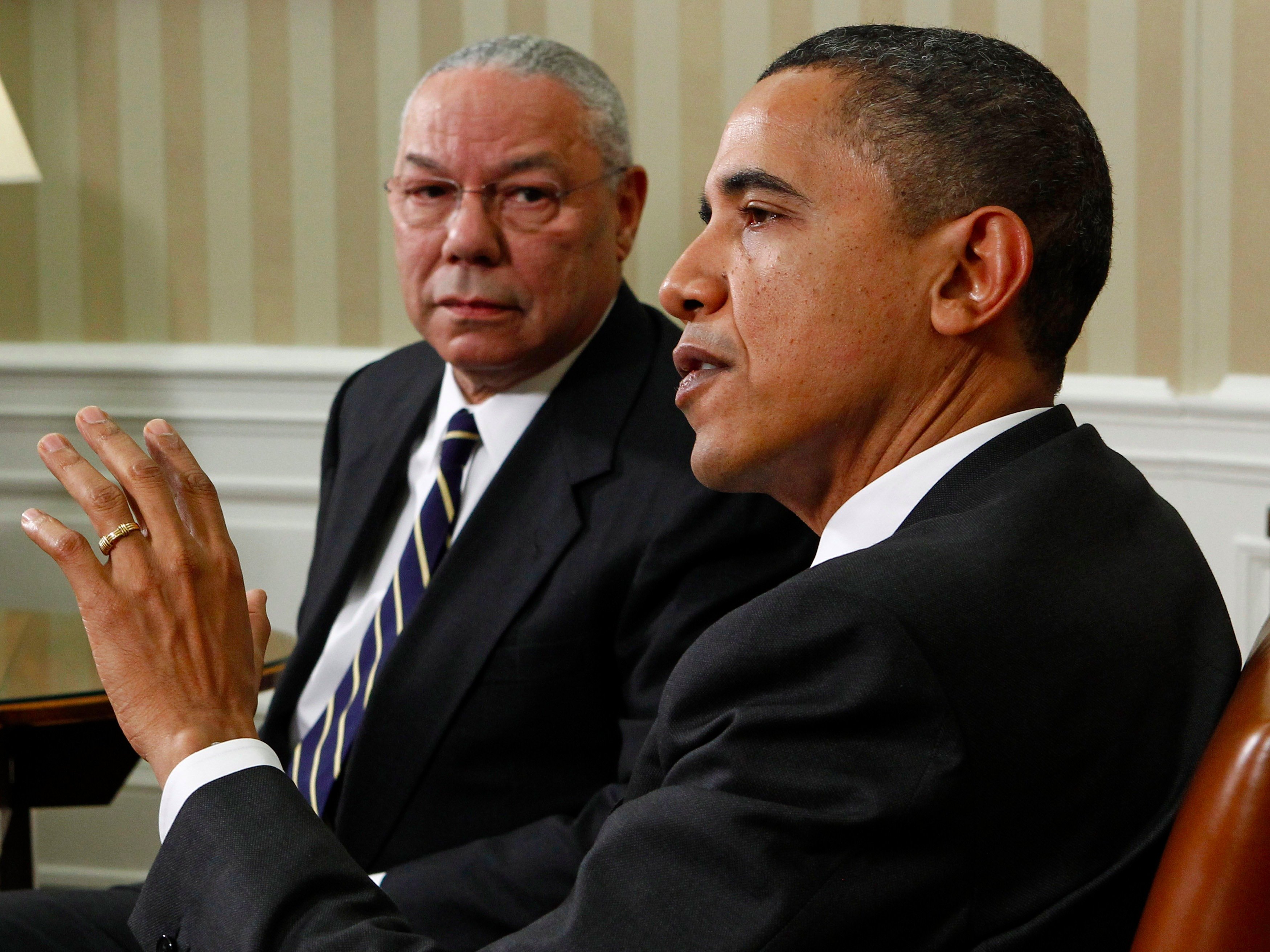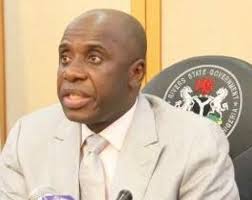(REUTERS/Jim Youn)
President Barack Obama meets with former Secretary of State Colin Powell in the Oval Office.
President Barack Obama just nabbed two key endorsements for the multinational nuclear deal with Iran that’s currently under consideration in Congress.
On Sunday, former Secretary of State Colin Powell said in an interview on NBC’s Meet The Press that he supports the nuclear deal, which mandates that Iran drastically reduce its nuclear-development programs in exchange for the easing of international sanctions.
“I think it is a good deal,” Powell told host Chuck Todd.
Powell, who served as secretary of state during the first term of George W. Bush’s presidency, cited the terms that ensure that Iran shuts down most of its centrifuges, reduces its levels of uranium and plutonium, and submits to international inspections.
Powell specifically rebuffed criticism that the deal would put Iran on a path to building a nuclear weapon, saying that the country has already been doing this for years.
“We’re forgetting the reality that they’ve been on a superhighway during the last 10 years to create a nuclear weapons … with no speed limit,” Powell said.
“We’ve stopped this highway race that they were going down, and that is very important,” Powell said.
Powell, a key military leader during the Gulf War who was long seen as a possible Republican presidential candidate, has also thrown his weight behind Obama at other key points during his career.
Powell endorsed Obama in 2008 despite the former secretary of state’s friendship and long working relationship with Obama’s opponent, Sen. John McCain (R-Arizona).
Following the interview on Sunday, Obama quickly tweeted out his appreciation for Powell’s support.
Obama also won another key endorsement over the weekend.
In a press release on Sunday, Democratic National Committee chair Rep. Debbie Wasserman Schultz (D-Florida) came out in favor of the deal.
“This agreement is not perfect. But I join many in the belief that with complex, multilateral, nuclear non-proliferation negotiations with inherent geopolitical implications for the entire world, there is no such thing as a ‘perfect’ deal,” Wasserman Schultz said in a statement.
“This is the most difficult decision I have had to make in the nearly 23 years I have served in elected office, and this vote will be the most consequential.”
Though Obama already has enough votes in Congress to ensure that the nuclear deal will survive a legislative attack from opponents, the administration has continued to sell the deal to skeptical Democratic members of Congress in order to avoid a messy legislative battle later this month.














